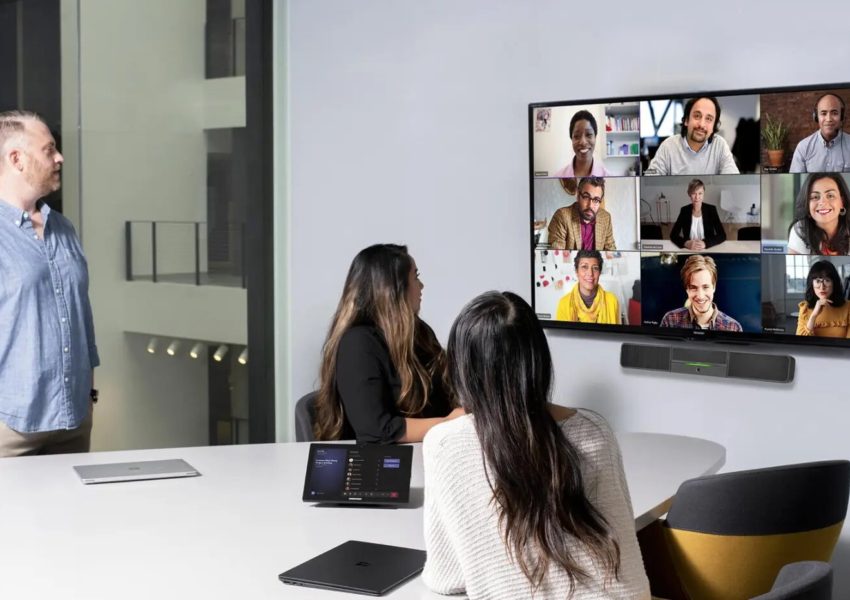Microsoft has released a new survey on the state of hybrid work, finding a major issue with trust among corporate leaders.
Companies are pushing for employees to return to the office after more than two years of pandemic-fueled remote and hybrid work. According to Microsoft, part of that push may be driven by “productivity paranoia” as leaders distrust how much their employees are working:
85% of leaders say the shift to hybrid work has made it challenging to have confidence that employees are being productive.
“Many leaders and managers are missing the old visual cues of what it means to be productive because they can’t ‘see’ who is hard at work by walking down the hall or past the conference room,” writes Microsoft. “Indeed, compared to in-person managers, hybrid managers are more likely to say they struggle to trust their employees to do their best work (49% vs. 36%) and report that they have less visibility into the work their employees do (54% vs. 38%). And as employees feel the pressure to ‘prove’ they’re working, digital overwhelm is soaring.”
Read More: Marc Andreessen: Remote Work Is ‘Potentially an Earthquake…Turning Point for Society’
Interestingly, the lack of trust leaders feel is not based on facts but rather on a changing status quo. For example, according to Microsoft, people are working more now than ever before. Some 87% of employees report being productive at work, and Microsoft’s own Microsoft 365 productivity markers continue to climb.
In addition, the company survey found that weekly meetings have jumped 153% globally, while overlapping meetings have jumped 46%. As a result, a whopping 42% of users multitask during meetings, using the opportunity to send out emails and communicate with others.
As a result of the disparity between what employees are doing versus what leaders think they’re doing, Microsoft makes a strong statement about the future of hybrid work:
Productivity paranoia risks making hybrid work unsustainable. Leaders need to pivot from worrying about whether their people are working enough to helping them focus on the work that’s most important.
Microsoft’s survey is clear: Based on the numbers, hybrid work is working. Employees are doing their jobs and working harder than ever. What’s more, according to a survey commissioned by DoorDash, remote and hybrid work is a big factor in Americans “living the dream.”
It would seem the biggest impediment to successful hybrid work is not the employees but the leaders within a company. Hopefully, more will take note of Microsoft’s research and put an end to “productivity paranoia.”

